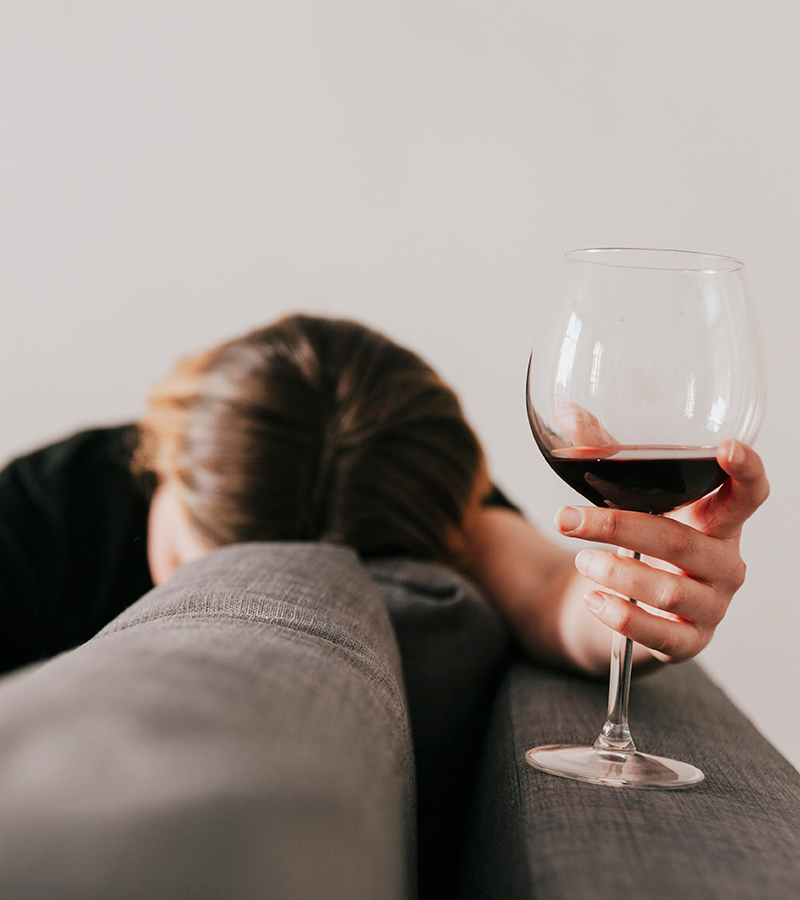In 1956, alcoholism was classified as a disease by the American Medical Association. The definition of a disease is “a quality, habit, or disposition regarded as adversely affecting a person or a group of people.”
The AMA’s conclusion is fitting to say the least. Today, alcoholism is a part of a much larger epidemic – the disease of addiction. Unlike physical ailments, alcohol addiction has become a serious societal issue, one plagued by stigmas and stereotypes. People often say, “Addicts are weak, they just need to toughen up and quit,” or, “Addicts are liars, burnouts and waste of space,” and “Addicts are bad people and criminals.”
All too often these types of judgmental statements are spoken. The purpose of this article is to give the reader a glimpse into what it is like to be an addict.

Outside circumstances vary drastically, but internally most addicts, including myself, have similar experiences although it can often feel like they’re the only one.
You’re introduced to a substance, you try it, and you like the way it makes you feel. In the beginning the substances make you feel euphoria, and for the potential addict, you just want to do it again. It’s a slow and gradual decline of one’s power of choice and into dependency.

As time goes on our tolerance for the substances gets greater. Leaving us needing more of our drug of choice in order to become intoxicated. So, what does any motivated addict do at this point?
More drugs and alcohol of course.
A non-addict may be able to anticipate what might happen if they continue down this path and decide to turn it around. This isn’t so with the real addict from our experience. What we see is delusions crop up, and from this altered reality we are able to find justifications for our actions.
Here is an example: a close friend of yours approaches you and says, “I think you should slow down with partying. I’m worried about you and you do not seem like yourself lately.”
The non-addict’s thought process might lead to some introspection like, “Are they right? Am I getting carried away? Maybe I should take it easy for a while.” An addict on the other hand may say, “They don’t know what they’re talking about! I’m fine and if they can’t accept me for who I am, then I don’t need them in my life.” This defensiveness and sometimes anger comes quickly when someone challenges them or they think they may lose their drug, which is one reason so many addicts become alienated from the people in their lives. This cycle goes on until you have reached the no man’s land of dependency.
Once an addict has reached the stage of full-blown dependency, it is incredibly difficult to stop. When I was using, you could have given me a lie detector test and I would have been telling the truth when I said I believed to my core that there was no chance that I could stop.
The physiological make-up of my body had changed. This is true with all addicts. As a person in long term recovery, I wanted to get clean for years before I was actually able to make it stick. Allow me to emphasize the important part of that statement. I wanted to get clean for years.
When an addict feels like they can’t stop using, they often feel ashamed, weak and like a failure. Having the world say the same and worse, contributes to an addict’s need to detach from those feelings on some level, so they just keep using. Punishing and condemning addicts, bad mouthing them and judging them will never help this problem. It doesn’t help the addict, nor does it benefit the world as a whole as society continues to perpetuate the cycle. What is needed is an educated society that understands the issue and its complexities, and how best to approach it.
Since the founders of Best Rehabs In Arizona have been in recovery we have found that addicts, and people in general for that matter, are capable of great things. The same men and women that come from dark, selfish, and lonely pasts are now selfless and caring, with a unique compassion for their fellow man. One in ten adult people in this nation are struggling with some form of addiction, and only one in ten of those people get help. These statistics are staggering. This disease does not discriminate. There are politicians, lawyers, policemen, doctors, pilots, therapists, and all other professions. We are your neighbors, your friends, your pastor, and your child’s school teacher. Before judging and condemning addicts, please remember that these people you are talking about are sick. Very sick. The power of choice is more than likely no longer in their grasp. They need compassion and understanding. They need help, and to be shown there is a way out.

For more information and the science behind each chemical’s effect on the body view our earlier blog posts or contact a Best Rehabs In Arizona founder directly at 877-651-3366.